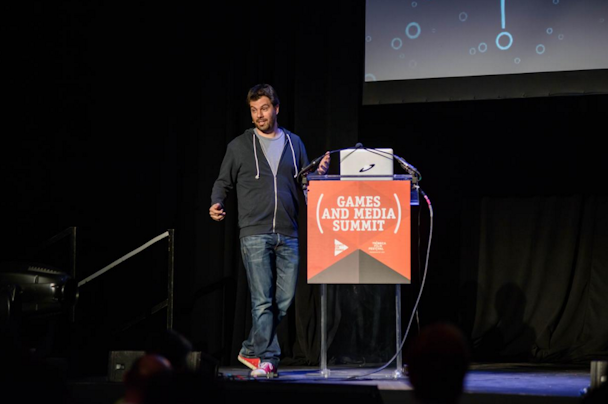Ad Council bets big on games to spread its social good messages
While a lot can be said about the ever-elusive millennial, the age group’s preference for authentic and socially aware advertising has been something that marketers have taken to heart over the past few years, creating campaigns that often focus less on their products and more on how they are using their resources to effect change in the world.

For the Ad Council and the organizations it works with, the fact that young people are increasingly interested in social causes is a boon for them since all of their efforts are focused around advocating for a certain cause, whether its literacy, hunger prevention or autism awareness.
But just like any other advertising outfit, the Ad Council still has to adapt to today’s fast-paced, digital marketing landscape if it wants young people to pay attention to its messages. That’s one of the reasons why the nonprofit is betting big on the game space, since millennials spend so much of their time toying with apps, messaging platforms and games on their phones.
Recently, the Ad Council decided to add a gaming element to its ongoing ‘Feed the Pig’ initiative, a campaign it launched years ago with the American Institute of Certified Public Accountants (AICPA) in an effort to educate 25-34 year olds about the importance of saving money.
In partnership with Games for Change, a nonprofit whose mission is to create and distribute social impact games, the Ad Council and AICPA came up with the idea for a ‘Feed the Pig’ crowd-sourced game design challenge. The challenge invited designers to submit ideas for digital game concepts that will help its target audience realize the importance of saving for the future, with the winning game receiving a $10,000 prize and two finalists getting $5,000 each.
Of the initiative, the Ad Council’s senior vice president of digital Anastasia Goodstein said that adding a game into the mix seemed like the next natural step since so many young people already play games on their phone anyway.
“This generation really grew up playing video games and now with mobile being so prolific, casual gaming has taken over as well,” said Goodstein. “Learning something like saving money should be fun and games are fun, so it just seemed like a natural fit for a very tech-savvy audience that has grown up gaming.”
Earlier this week at the Games for Change’s Games & Media Summit, which was hosted in partnership with the Tribeca Film Festival, the three finalist teams in the ‘Feed the Pig’ challenge partook in a pitch-fest where they presented their game ideas to a panel of judges to determine who would take home the grand prize. Judges included president of Truffle Pig Paul Marcum, CEO of Game Theory Marguerite Dibble and chairman of the National CPA Financial Literary Commission Gregory J. Anton.
Scott Garner, a multidisciplinary artist who graduated with a BFA in design from the Cornish College of the Arts in 2010, ended up taking home the $10,000 prize with his “Yesterday’s Tomorrow,” game concept.
While it hasn’t been created yet, the idea behind the game is that it will let people see how a financial decision they make today could affect them tomorrow, a year from now, even 10 years from now. According to Garner, it will “explore how your choices affect the future by visiting the future.”
Players can create characters with certain attributes and then see how their choices – say, saving birthday money from your grandparents or paying off some college debt – could affect their financial situation down the line.
“I've been fascinated for a long time by the relationship between a person at one age and that same person at another age,” Garner said. “Obviously it's the same individual, but so many things can change from one stage of life to another that the versions of ourselves from ten years ago or ten years from now can almost seem like total strangers. I think exploring the relationship between oneself at twenty and oneself at sixty five is the first step to really understanding that we are personally responsible for all the people we have been and all the people we will someday become. Fully grasping that relationship, I think, will lead to better habits, of which saving is one.”
Aside from the $10,000 prize, an additional $40,000 has been allocated for game development. If Garner is unable to execute the game on his own, the budget will be put towards bringing another developer and possibly other resources onboard to help bring the game to life.
President of Games for Change Susanna Pollack said that a game will help the Ad Council and AICPA resonate with their target audience because it immerses players in scenarios "which make them think about the consequences of their decisions."
"Making choices, seeing the outcomes and getting to fail in a simulated and pretend environment allows audiences to test boundaries, rehearse decision making processes and fail in a safe place," she said. "Testing the limits in the game will give them a sense of what are the important decisions they need to make to achieve the future they want.
While this is only one game for one campaign, Goodstein said that the Ad Council is just beginning to dip its toes in the water when it comes to games. She noted that engagement rates with games are much higher than those on a web page, which has spurred the Ad Council to invest more time and resources into how games can help its many partner organizations spread their social good messages.
“In general, we are really trying to play more in the game space,” she said.

